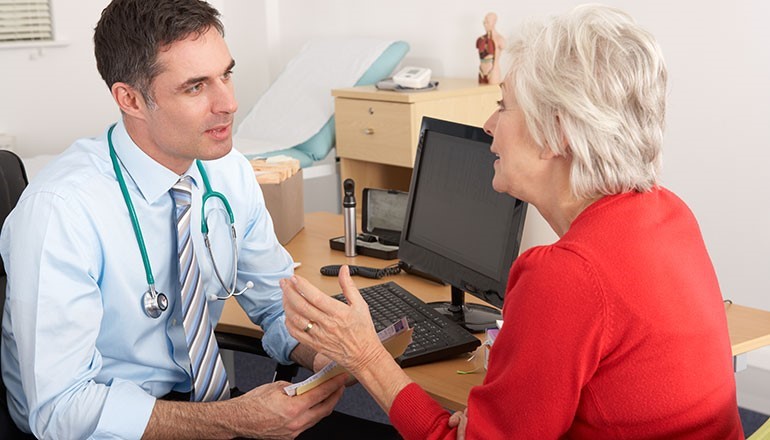Our 2019 report, which looked at the experiences of over 2,000 people living with secondary breast cancer, found that many were experiencing avoidable delays in diagnosis.
Early diagnosis of secondary breast cancer matters. However, our 2019 report, which looked at the experiences of over 2,000 people living with secondary breast cancer, found that many were experiencing avoidable delays.

Almost a quarter of people had three or more visits to the doctor
23% of respondents had to see their GP three or more times before they were diagnosed with breast cancer. Among respondents who had previously had breast cancer, this was almost a quarter (24%).
A prompt diagnosis means that patients can begin treatment and access supportive care as quickly as possible. Timely access to treatment and care can relieve symptoms and have a dramatic impact on quality of life.
That’s why, alongside increasing the information provided to patients on the signs and symptoms of secondary breast cancer, we have been calling for tools and resources to be developed to help GPs recognise cases of secondary breast cancer as quickly as possible.
Being diagnosed quickly would have saved me four and a half months of pain, suffering and anxiety. I was constantly worrying about what was wrong with me.
Aliya
How we're helping
We’re really pleased to have worked with GatewayC to develop a new course for GPs and other primary care professionals.
GatewayC is a free online cancer education platform which provides both online courses and webinars for primary care professionals across England. The platform has been developed by GPs, specialists and people affected by cancer with the aim of improving diagnosis outcomes. The courses are accredited by the Royal College of General Practioners.
GatewayC’s new Breast Cancer Recurrence course aims to support GPs and other primary care professionals in recognising the symptoms of breast cancer recurrence (including secondary breast cancer) and improve confidence in decision-making regarding referral back to breast cancer services.
What impact will this have?
We know that it can be challenging for GPs to spot potential cases of secondary breast cancer. A typical GP may see very few people with secondary breast cancer, making it hard for them to gain experience in identifying potential symptoms.
Secondary breast cancer can develop many years after treatment for primary breast cancer has ended - sometimes a decade or more. There are also many different symptoms of secondary breast cancer, which can vary depending on where in the body the cancer has spread to.
Many of these symptoms, such as backache or nausea, are not specific to secondary breast cancer and can be caused by other health conditions.
I was diagnosed 12 years on from having primary breast cancer. Nobody even considered it was anything to do with that.
Joy
What next?
Breast Cancer Now has been involved in the development of this course and, as a key recommendation from our 2019 report, we’re keen to see this accessed by as many GPs as possible across England.
We’ll be working closely with GatewayC to promote the course, as well as calling on our supporters to help us ensure GPs in their area are aware of this fantastic new resource.
We’re keen to see similar resources available for all GPs across the UK and will continue to call for this as part of our campaigning.
In addition to our work with Gateway C, we are planning further activity this year to promote awareness of the signs and symptoms of secondary breast cancer amongst health care professionals and breast cancer patients.
Worried about secondary breast cancer?
You can learn more about the signs and symptoms of secondary breast cancer by visiting our information pages. Or, if you’d like to talk to someone, the nurses on our free Helpline are here to offer support and answer your questions. Call 0808 800 6000.
And remember, it’s important to talk to your breast care nurse or GP if you have any symptoms that are new, don’t have an obvious cause and don’t go away.
To support us with this campaign and others, be sure to check out how you can get involved.